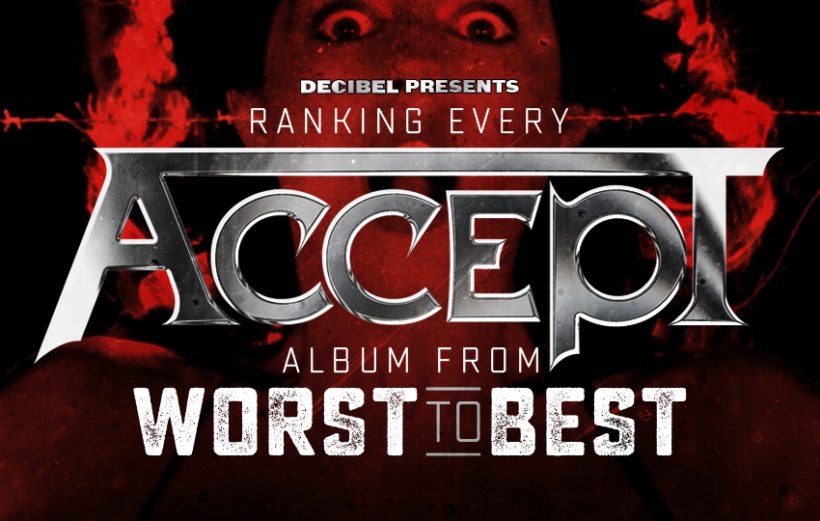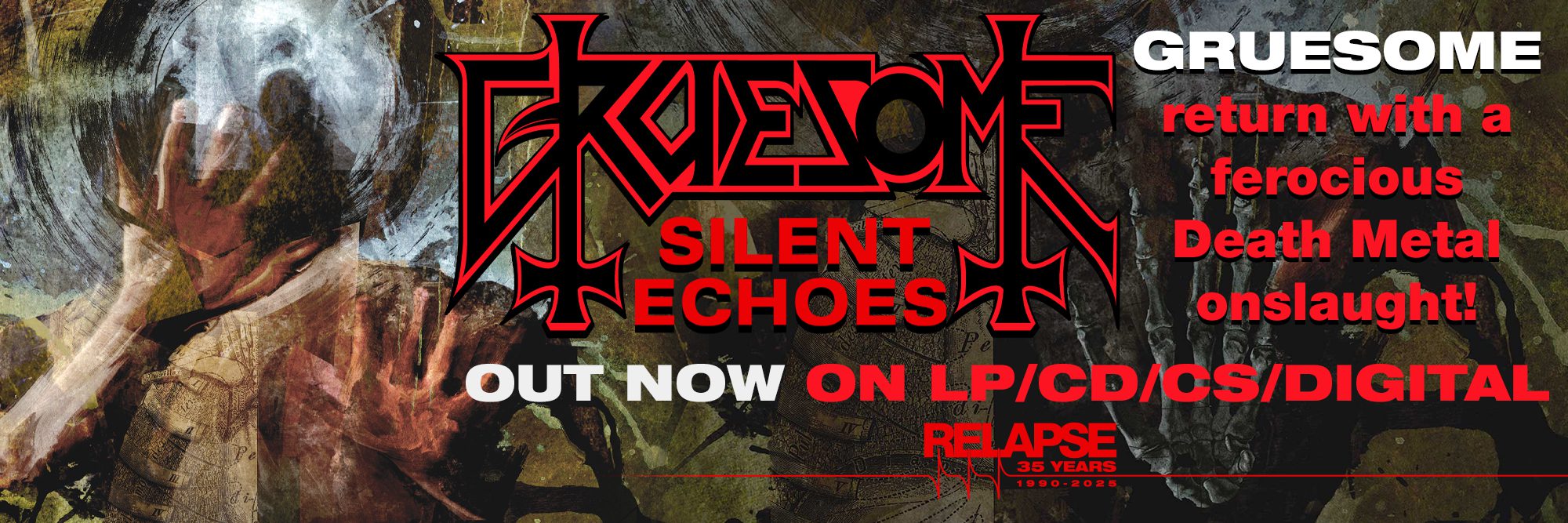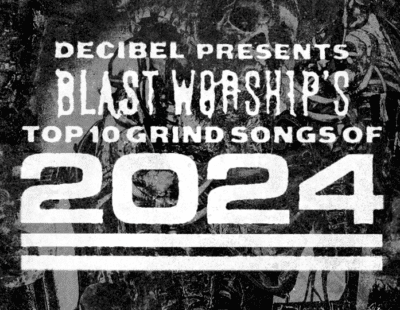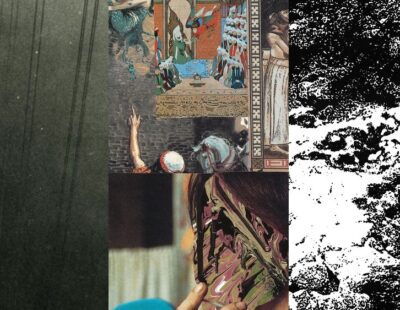
German tried-and-true metallers Accept have, at this point, a pretty hefty and multi-faceted catalog. We’ve got the confused early era, the pure metal glory era with Udo Dirkschneider behind the mic, a faultering album, a one-off with David Reece on vocals, a up-and-down comeback with Udo, and a surprisingly good late-career resurgence with Mark Tornillo on vocals.
And, man, I spend a lot of time pulling my hair out trying to get it all straight in my head—is the second self-titled album better or worse than Eat the Heat? Are the Tornillo albums better than any Udo albums? Do any of the Udo-reunion albums hold up better than first-era Udo albums?
I knew what I had to do: revisit every Accept album and find out once and for all how they rank up to each other. To be honest, some of the results kinda surprised me, but you can’t argue science. “Science” in this case being me drinking beer and rocking out to the entire catalogue of one of the greatest metal bands of all time. Read on, agree, disagree, doesn’t matter; just never forget that Accept rule.
15: Eat the Heat (1989)
Honestly thought this one might end up higher up on this list somehow, but after revisiting it, yeah, here it sits, the album not really working as an Accept album or as a particularly strong example of metal circa 1989. And it’s actually even more dull than I remember, the album just slogging on for 53 uneventful minutes, the riffs not doing much, just nothing really happening. I guess there are songs here, but I’m not sure. What can you do? The band had to do something at this point so David Reece hopped on to try to create some memories, but there was just zero of the magic that made their earlier material such classics. I dunno, “Prisoner” has some good guitar melodies, I guess, “Hellhammer” and “D-Train” actually rock moderately hard and “Stand 4 What U R” is one of the best crap sell-out ’80s songs there is, which really doesn’t really help matters any.
14: Predator (1996)
The third and final Udo-reunion-era album does not hold up well, the production barely holding the tension together at the seams, bassist Peter Baltes singing fully three of these 12 songs (including two in a row, placed at number five and six, which completely blows the album’s flow). This album takes Death Row’s no-fun vibe and runs it into the ground, not even inviting Udo to a quarter of the damn thing (which we do not approve of, being serious Udo fans around here); sure, it adds probably more cowbell than any other Accept record but it’s still no party. “Take Out the Crime” is okay, as is the title track and opener “Hard Attack,” but, still, this one isn’t exactly an Accept classic. Closer “Primitive” is absolutely atrocious, and has aged even worse than you were fearing, by the way.
13: Death Row (1994)
This one starts off with a tough slog, the title track grumbling miserable and no fun, promising that this album might just be 71 minutes of low spirits. This second reunion-era album lacks the energy that its predecessor, Objection Overruled, had, the band instead just plodding and plodding and wearing out their welcome. Slice it in half and up the irons a bit to get it higher up on this list; as is, I’ll just never reach for this one, going for Objection when I need the full production sound and mid-tempo German steel, but without the overwhelming oppression and fatigue this grim album, sadly, spends far too much time offering up. “Bad Habits Die Hard” is fun, “Bad Religion” has some Accept magic, and, yeah, the album hits the spot if you’re in the right mood. Also, instrumental “Drifting Apart” is oddly moving and, grudgingly, I’ll admit that “Pomp and Circumstance” kinda works. Still, the whole thing is too long, and too one-dimensional to really want to go to all that often.
12. The Rise of Chaos (2017)
Interesting how this worked out, all the Tornillo albums tucked together here, Death Row peering and leering over its shoulder, wondering how exactly anything could be above any Udo-era album, but here you have it, the band locked and loaded once again on this album. I heard naysayers saying it sounded like the gas tank was running a bit empty here, but I didn’t really buy it at the time; listening to it again back to back with the other Tornillo discs, that’s a bit more clear, the songs here not bad but not quite sounding as Acceptian as the other trio of Tornillo. Love opener “Die by the Sword,” hate the lyrics to “Analog Man” (“Computers crashing/I want to smash ‘em/I just don’t understand!” are you fucking kidding me this is why young people can’t take this stuff seriously). I dunno, I have a hard time coming to terms with any Tornillo record being above any Udo record, but when it comes down to brass balls tax, this is the end result.
11: Accept (1979)
I’ve always had a bit of a hard time with the first two albums, never fully making either my life’s soundtrack, although, here, opener “Lady Lou” is awesome enough, even though I never really knew what they were getting at with that song title. “Tired of Me” is Accept at their most ragged and dirty, and it’s actually really awesome, the band showing a sort of young-man desperation that would continue into the classic Balls era but with more spit-shine. “Seawinds” is a forgettable ballad, sung by bassist Peter Baltes, that looks longingly over to Scorpions, “Take Him In My Heart” is weird, “Sounds of War” is another Baltes-sung tune, which only adds to this album’s confusing mish-mash of sounds, although the music here ain’t half-bad, a trad metal rager that is heavier than the paper-thin production lets off. “That’s Rock and Roll” is too frantic for its own good, shuffling this album off into oblivion. Fun, but exists more as a curio than anything.
10. Blind Rage (2014)
Man, almost hard to feel much of anything for this one, even though it does the job just fine, album number three with “we’ll always call him ‘the new guy’” Tornillo on vox totally sturdy, dependable, reliable German steel and metal, forged in fire, forged in flame. The stoopid stuff like “Wanna Be Free” shouldn’t work but does, and the ragers like “Dying Breed” rage hard enough. Maybe doesn’t storm out of the gates as strong as I would have liked an album with a bull on the cover to, but aside from that, Blind Rage does the job just fine. Things get a bit dodgy here, and depending on your mood, the self-titled record from ’79 and this one could swap spots.
9. Stalingrad: Brothers In Death (2012)
Second one with Tornillo finds the band in a comfortable zone, everything locked in solid and tight, the band mercifully clocking the runtime back to 51 minutes, basically taking Blood of the Nations and cutting to the chase. However, it clocks slightly below that album for not quite having the bloodlust and the clear desire to prove themselves this time around. Instead, they know they’re on fire, and they don’t exactly coast, they just ride their sound to perfection. See “Hellfire,” see the awesomely titled “Flash to Bang Time,” see the moody but still awesome “Shadow Soldiers.” See the riffs throughout the album. See it battling for Bloodon this list, and see it some days winning. Great album, despite the confusing name, which really makes it sound like a live record.
8. Blood of the Nations (2010)
First one with Tornillo behind the mic, and he comes out all guns blazing with cool opener “Beat the Bastards,” which finds the band with more energy than they’ve had since at least Objection Overruled, easy. “Teutonic Terror” could have been stupid but is instead awesome, and the title track was alarmingly close to being an Accept classic the day it came out (although, again, can a producer please step in and teach these guys a quick lesson in songwriting economics please and thanks?). The album as a whole is 20 minutes too long, full stop, but the band had something to prove here, so, fine. Sure, “The Abyss” wears out its welcome but is still a pretty cool tune; “Kill the Pain” does nothing but kills the momentum and can use the door. There’s fat to trim, but a solid release nonetheless, full of raging Teutonic metal. Need a quick, molten-fire example? “Pandemic” for the win.
7: Accept (1980)
More commonly known as I’m a Rebel, Accept really came out of the gates with something to prove here, the song “I’m a Rebel” immediately more focused, hard-rocking, and Accept-ish than anything from their first album. “Save Us” is also a raging early hard rocker, Accept really solidifying their identity here after their shaky debut. Unfortunately, they mimic the debut by then having Baltes take over the mic for a ballad at track three, “No Time to Lose.” The rest of the album is hit and miss, the band searching for that Accept sound that wouldn’t come fully into play until next time around, ending up with a couple killers (“Do It” is pretty undeniable) and one classic in the process, but even with its warts, this album places admirably here for its spirit and undeniable likeability.
6: Russian Roulette (1986)
Weird one here: I’ve tried so many times over the years to get into it, and I couldn’t even really tell you what’s wrong with it. There’s just an obvious lack of enthusiasm, even on the speedy opener “T.V. War,” which should be a great melodic speed-metal slice of Accept, and it is good… but not great. Clearly, the band was falling apart at this point, as this was the last album with Udo Dirkschneider behind the mic until his return for a trio of albums later on. I always dug “Monsterman” for its killer chorus, but much of this album rides this weird line between acceptable Accept and completely forgettable Accept-lite. Rarely reach for this one, even if when it’s playing, songs like the title track do the job admirably and adequately, and the kinda-ballad “It’s Hard to Find a Way” is actually not bad. There’s just a lack of passion behind the material here, and it shows. I mean, by the time you slog it through “Heaven Is Hell,” you basically want it to be over. Still, gets above a few albums due to “Monsterman” alone, really and a late-album burst of solid material, like “Man Enough to Cry,” “Walking in the Shadow,” and cool, anthemic closer “Stand Tight.” Still, beats out the Tornillo albums and I’m a Rebel, which shows how much magic Accept had back in the ’80s—even on their decline, they still manage to sleepwalk their way through an album that sits comfortably in the middle of this list.
5: Objection Overruled (1993)
These three reunion-era albums with Dirkschneider behind the mic were always a bit of a tough sell for me, but I must admit now that this one is, upon further re-examination, pretty great. It’s solid as a tank, if not a bit stiff, self-aware, and kinda hard to warm up to at times. Still, shiny and steely Germanic metal, a huge middle finger to 1993, no “Stand 4 What U R”s in sight, if U catch mEYE drift. Hard to deny a song like “Slaves to Metal,” even if I will completely forget it exists the second it stops its mid-tempo grind und stomp, and “All or Nothing” has some bright melodies amongst all the sour dour grumbling that makes up this album. “Sick, Dirty and Mean” and “Donation” make a great late-album pair of shining stars here, reminding me as things wind to a close that this album isn’t quite as impenetrable as I always think it is.
4: Breaker (1981)
In which our heroes slowly but surely become the Accept we know and love, absurd cover art betraying the killer, steely, German metal enclosed. We’re not quite at Restless and Wild levels of proto-thrash mayhem yet, but we’ve got brisk, speedy, economic and melodic Teutonic metal; we’ve got the excellent “Starlight.” We’ve got the title track, featuring probably the most effective use of the words “bicycle chains” in a metal chorus ever. We’ve got “Son of a Bitch.” We’ve got Baltes singing on the obligatory forgettable ballad again (stop that). We’ve got the excellent “Run If You Can,” perhaps the first example of Accept really tapping into their melodies to full effect. The great “Can’t Stand the Night” finds the band finally exploring a dark, moody space that’s not a rote ballad. The second half of the album finds the band absolutely confident and settling into their sound, “Burning” and “Feelings” standing as not complete classics but extremely solid songs where the band is finding their footing. And then there’s “Midnight Highway,” the band tapping into that great melodic commercial sound they also do so well and would peak with on Metal Heart.
3: Restless and Wild (1982)
A mere year after Breaker comes this proto-thrasher, the band attacking like Motörhead on the classic title track, here on their fourth album finally throwing down the gauntlet, getting to where they’ve been slowly heading to all this time (although it didn’t take that long once they started releasing albums, this being their fourth in four years). The opening one-two of “Fast As a Shark” and the title track totally rules, Accept absolutely taking no prisoners, going faster and harder than ever, full steel metal attack on 10. “Ahead of the Pack” rules, and “Shake Your Heads” lays down a very Priestian mid-tempo anthem stomp. “Neon Nights” has one of the greatest Accept choruses to date;
“Get Ready” counters much of the album’s dark mood with an uplifting anthem. I’m in the minority in that I think “Princess of the Dawn” is actually pretty annoying, but small complaint on an album of such high, forward-thinking quality, one that graces our Hall of Fame for a reason.
2: Metal Heart (1985)
For years, I defended this one over Restless and Wild, the cartoon-blue breakfast-cereal melodies just too pleasing to turn away, and damned if I’m not still going to do it, shooting down any and all accusations of crass commercialism with counterarguments including my frantic ramblings about how this album is actually Accept boiled down to their melodic finest, their most concise exploration of melodic metal to date, as well as the most uplifting one. Sure, it lacks a bit of the bite of, say, “Restless and Wild,” but have you cranked “Up to the Limit” or “Midnight Mover” recently? They’re incredible, and “Wrong Is Right” thrashes hard and fast, just with a glossy sheen. “Screaming for a Love-Bite” is kinda ridiculous but also kinda absolutely rules. “Dogs on Leads,” “Teach us to Survive,” “Living for Tonite”… all incredible examples of economic, anthemic, Teutonic metal at its finest. Closer “Bound to Fail” is incredible. There’s not a dud in the batch here, man. Call me what you will, but some days, this gets pretty close to the number-one spot on this list.
1: Balls to the Wall (1983)
This album is just a massive masterwork of Germanic steel and metal, dark melodies clashing up against darker vibes in the back alleys of some town I really, really want to visit some day. The title track, “London Leatherboys,” “Fight It Back” and “Head Over Heels” make up an absolutely perfect opening batch of tunes, and then side A ends with “Losing More than You’ve Ever Had,” a song that will stand as one of the greatest metal songs ever recorded. Side B continues the glory, Udo Dirkschneider absolutely killing it on “Love Child” and “Turn Me On” (“I know you would like some light/but sorry, here is no lamp!” is one of the greatest lines in a metal song, ever); meanwhile, “Losers and Winners” is up there with “Losing More than You’ve Ever Had” as far as being a drop-dead Accept classic, and “Winter Dreams” is Dirkschneider at his morose best, a great way to close what is one of my favorite albums of all time. I know people tend to lean Restless over Balls due to the former being thrashier and more groundbreaking for the time, but for long-lasting impact, you can’t top Balls in my books. Show me the sign of victory: this album is perfect.







